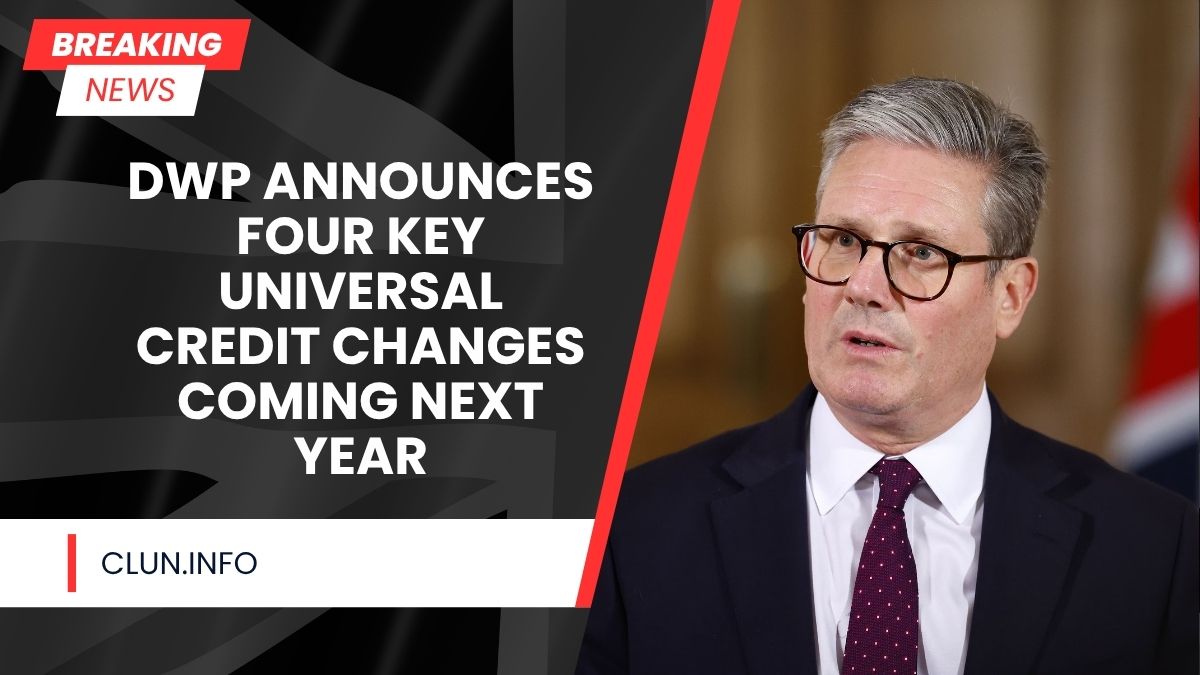Nearly four million UK households could soon benefit from an annual Universal Credit uplift of £725, according to the Department for Work and Pensions (DWP).
This increase is proposed as part of the Universal Credit Bill, which is due for Parliamentary debate. If passed, it will implement historic changes to how welfare support is calculated and distributed.
Universal Credit Bill Explained
The Universal Credit Bill aims to address long-standing issues in the current welfare system, particularly around financial imbalance and disincentives to work. Among its key features:
- A permanent increase in the Universal Credit standard allowance, expected to rise above inflation by £725 in cash terms for individuals aged 25+ by 2029/30.
- A reduction in the health top-up for new claims, capped at £50 per week starting April 2026.
The Institute for Fiscal Studies (IFS) has called this the largest real-terms boost to out-of-work benefits since 1980.
What the Reforms Mean for Claimants
Standard and Health Elements Merged
The reforms propose a merger of the Universal Credit standard allowance and health element, affecting both existing and new recipients who meet criteria such as:
- Severe Conditions Criteria
- Terminal illness under the Special Rules for End of Life (SREL)
These recipients will continue to receive enhanced support, which will be exempt from reassessment for those with long-term, irreversible conditions.
Work Flexibility Through ‘Right to Try Guarantee’
To encourage individuals with disabilities or chronic conditions to attempt employment, the DWP is introducing the Right to Try Guarantee. This allows beneficiaries to explore job opportunities without the risk of losing benefits due to failed work attempts.
Parliamentary Progress and Political Reaction
The House of Commons has already passed the Bill with a vote of 336 to 242, sending it forward to the House of Lords for further scrutiny. Work and Pensions Secretary Liz Kendall emphasized the goal of fairness and opportunity, stating that the reforms will:
- Help people escape the benefits trap
- Provide dignity and security to disabled individuals
- Encourage work participation without fear of reassessment
Massive Investment in Employment Support
A £3.8 billion investment underpins these reforms, focused on:
- Employment and skills development
- Programs such as Connect to Work, offering personalized guidance
- Delivering tailored support via the Pathways to Work guarantee
This initiative aims to streamline welfare-to-work transitions, especially for the sick and disabled.
Backlash from Charities and Advocacy Groups
Despite DWP assurances, multiple charities have criticized the changes:
Turn2us CEO Thomas Lawson
Warned that the £200 monthly cut to health support from 2026 could leave many without essentials, worsening poverty.
Sense CEO James Watson-O’Neill
Called the cuts cruel and distressing, especially for disabled youth. He highlighted the rise of a two-tier welfare system that punishes late applicants.
Parkinson’s UK’s Juliet Tizzard
Condemned the Bill for ignoring fluctuating conditions like Parkinson’s. She stated that people with non-continuous symptoms risk being unfairly disqualified.
Future of Disability Assessments
A major review of Personal Independence Payment (PIP) assessments is underway, led by Disability Minister Sir Stephen Timms. The DWP plans to co-develop this process with:
- Disability organizations
- Health professionals
- MPs and stakeholders
Their goal is to build a fair, modern system that accurately reflects the needs of people with varied health conditions.
Summary Table of Key Universal Credit Changes
| Change | Details | Effective Date |
|---|---|---|
| Annual UC Increase | £725 boost for single adults aged 25+ | By 2029/30 |
| Health Top-Up Reduction | Reduced to £50/week for new claims | April 2026 |
| Exemption from Reassessments | For those with Severe/Lifelong Conditions | April 2026 onward |
| ‘Right to Try’ Guarantee | Job attempts without reassessment risk | Immediate |
| PIP Assessment Review | Inclusive, co-designed assessment reform | Ongoing (Summer 2025 engagement) |
The DWP’s proposed Universal Credit reforms represent a significant shift in the UK’s welfare landscape. While the planned £725 boost by 2029/30 could benefit millions, the Bill’s reduction in health-related benefits has drawn strong criticism from charities and advocacy groups.
The reforms aim to promote independence and employment but risk excluding the most vulnerable without careful implementation. As the Bill proceeds to the House of Lords, its long-term impact will depend on continued dialogue and responsiveness to feedback from the disabled community and support organizations.
FAQs
Who will benefit from the £725 Universal Credit increase?
The boost will primarily help single individuals aged 25 or over on Universal Credit, with the full amount realized by 2029/30.
Will disabled people lose their benefits under the new rules?
Not all. Existing claimants and those with severe or terminal conditions will retain higher payments, though new applicants face reduced health top-ups.
What is the ‘Right to Try Guarantee’?
It allows individuals with disabilities or chronic health conditions to attempt work without the threat of losing their benefits if employment doesn’t work out.




